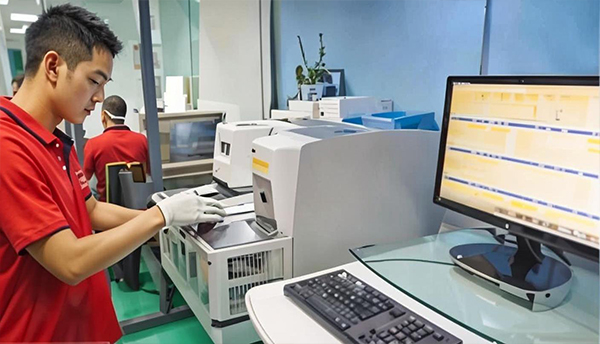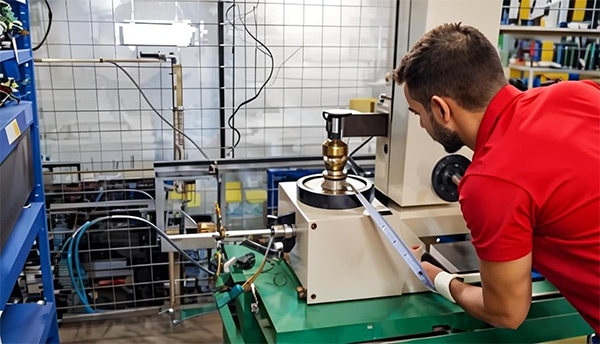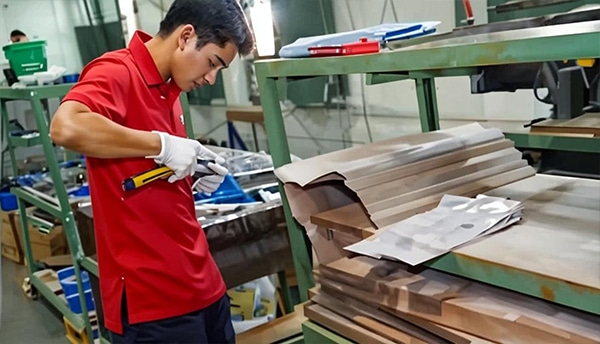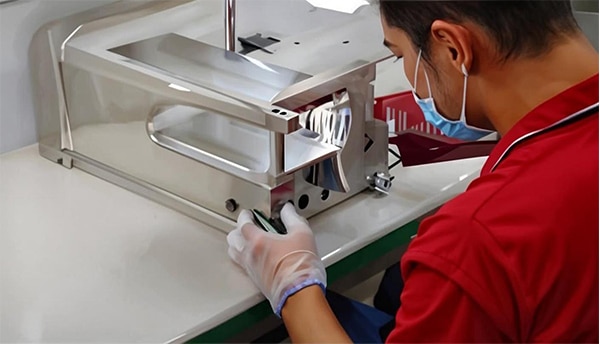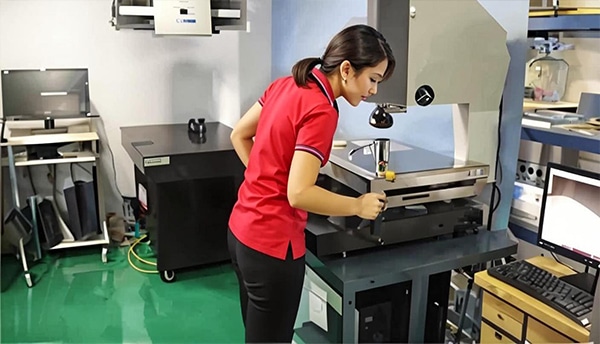Introduction to Anodized Aluminum and CNC Machining
Anodized aluminum is a form of aluminum that has undergone an electrochemical process to enhance its protective qualities and aesthetic appeal. This process, known as anodizing, creates a durable oxide layer on the surface of the aluminum. This not only increases its resistance to corrosion and wear but also allows for color finishing options that make it visually attractive for various applications. Industries such as aerospace, automotive, and electronics greatly benefit from the properties of anodized aluminum, as it offers both strength and lightness, making it an ideal material for high-performance components.
The anodizing process itself involves immersing aluminum parts in an acid electrolyte bath and applying an electric current. This results in the formation of an aluminum oxide layer that is integrated with the underlying metal. Aside from enhancing durability, anodized aluminum also possesses improved surface hardness and is easier to clean, further making it a preferred choice for many industrial applications.
CNC (Computer Numerical Control) machining plays a crucial role in the production of anodized aluminum components. This technology allows for high precision and repeatability, enabling manufacturers to create complex shapes and intricate designs that meet specific requirements. Custom CNC machining services can tailor the production process to accommodate a variety of sizes and specifications, ensuring that the final product meets stringent industry standards.
By integrating CNC machining with anodized aluminum production, manufacturers can achieve a perfect blend of precision and durability. This synergy not only streamlines the manufacturing process but also enhances the overall quality of the anodized aluminum shells produced. In this ever-evolving industrial landscape, custom CNC machining services are increasingly becoming essential for companies seeking to leverage the benefits of anodized aluminum for their projects.
The Process of CNC Machining Anodized Aluminum
CNC machining anodized aluminum is a multifaceted process that begins with the initial design phase. During this stage, designers and engineers collaborate to create a detailed blueprint that outlines specifications such as dimensions, tolerances, and surface finishes. Software tools, such as CAD (Computer-Aided Design), play an essential role in transforming conceptual ideas into precise manufacturable models, which can be directly translated into machining instructions for CNC equipment.
Once the design is finalized, material selection becomes the next critical step. Anodized aluminum is selected for its excellent strength-to-weight ratio, corrosion resistance, and aesthetic appeal. The aluminum alloy must meet specific mechanical properties to ensure optimal performance in its intended application. Following material selection, the aluminum is sourced from reputable suppliers who ensure high quality and compliance with industry standards.
With the design and material in place, the CNC machining process commences. This involves the utilization of computer-controlled tools to accurately cut, shape, and finish the aluminum parts. The primary machining processes include milling, turning, drilling, and grinding. State-of-the-art CNC machines, equipped with specialized tooling, ensure high precision and repeatability, allowing for complex geometries to be achieved effortlessly.
Following the CNC machining, anodizing treatment is undertaken to further enhance the aluminum’s properties. Anodizing not only adds a layer of protection but also improves wear resistance, ensuring that the final product can withstand rigorous conditions. The anodizing process involves electrochemical treatment to create a thick oxide layer on the surface of the aluminum, which can be dyed for aesthetic purposes. Quality control measures are integral throughout this process, as inspections are conducted to confirm dimensional accuracy and surface finish standards, thereby ensuring the highest quality output.
Benefits of Using Anodized Aluminum Shells in Custom Machining
Anodized aluminum shells offer a plethora of advantages that make them highly suitable for custom CNC machining projects. One of the most significant benefits is their enhanced corrosion resistance. Anodizing creates a protective oxide layer on the aluminum surface, which is far more durable than untreated aluminum. This feature makes anodized aluminum ideal for applications in harsh environments, such as aerospace and automotive industries, where exposure to moisture and other corrosive agents is common.
In addition to corrosion resistance, anodized aluminum shells also provide an aesthetic advantage. The anodization process allows for a variety of colors to be applied to the aluminum surfaces, enhancing their visual appeal. Custom CNC machining projects can leverage this property to create distinctive, eye-catching products that stand out in a competitive marketplace. This aspect is particularly important for consumer electronics and consumer goods, where product design plays a pivotal role in attracting customers.
Moreover, anodized aluminum exhibits improved hardness compared to its non-anodized counterpart. The anodized layer significantly increases the surface hardness, providing better wear resistance that is crucial for components that experience friction or abrasive conditions. This characteristic makes anodized aluminum shells suitable for machinery parts, automotive components, and various industrial applications.
Another notable benefit is the low weight of aluminum, which is retained even after anodization. This property contributes to the development of lightweight structures without compromising strength or durability. Such attributes are essential in industries like aerospace, where weight reduction can lead to significant fuel savings and enhanced performance.
Lastly, anodized aluminum shells also exhibit good electrical insulation properties. This makes them advantageous for electronic components, where preventing corrosion and ensuring electrical insulation is critical. Overall, the multifaceted benefits of anodized aluminum shells make them a superior choice in custom CNC machining, fostering innovation and performance across diverse applications.
Choosing the Right CNC Machining Service for Anodized Aluminum
Selecting an appropriate CNC machining service for anodized aluminum components is a critical process that impacts the overall quality and performance of the finished product. The first factor to consider is the experience of the service provider. A company with a proven track record in working with anodized aluminum is likely to possess the necessary expertise and knowledge to handle intricate specifications and parameters. It is beneficial to inquire about their history in the industry, as well as any specific projects they have completed that mirror your requirements.
Technology and capabilities are also essential in your decision-making process. Modern CNC machining requires advanced technology to ensure precision and efficiency, especially when working with materials like anodized aluminum. Assessing the types of CNC machines they operate, as well as the software employed for design, can provide valuable insight. Furthermore, ensure that the service provider has the necessary equipment to perform the anodizing process effectively, as this is key to enhancing the material’s durability and corrosion resistance.
Customer service is another vital aspect to evaluate. Open lines of communication between you and the service provider can ease the customization process and help resolve any queries that might arise. When selecting a machining service, reach out directly to gauge their responsiveness and willingness to engage. Additionally, discuss your customization requirements and ensure they are eager and capable of accommodating them.
Finally, when reviewing quotes from potential providers, look beyond the price. Compare the quality of services offered, turnaround times, and any additional services included, such as post-processing and logistics. Ask relevant questions that uncover their processes and capabilities. This diligent approach will empower you to make an informed choice that aligns with your project’s specifications and budget.
Case Studies and Success Stories
Custom CNC machining has become a game-changer in producing anodized aluminum shells, leading to remarkable success stories across various industries. One notable case involved a high-tech electronics company that required lightweight yet durable enclosures for their advanced communication devices. The challenge was to create a design that not only met stringent performance requirements but also reflected the company’s sleek aesthetic vision. By partnering with a specialist in custom CNC machining services, they achieved precision in every dimension, while the anodization process enhanced the shells’ resistance to corrosion and wear. Ultimately, the end product not only met the performance benchmarks but also enhanced the product’s marketability, contributing to a significant increase in sales.
Another success story comes from the automotive sector, where a manufacturer sought to develop an anodized aluminum shell for a new line of electric vehicles. Given the growing demand for lightweight components that improve energy efficiency, their previous materials were insufficient. The custom CNC machining provider was tasked with producing intricate designs for battery housings that featured sophisticated cooling channels. Through advanced stock preparation and precise machining techniques, the team was able to deliver robust shells that significantly optimized the thermal management, thereby enhancing overall vehicle performance. The project concluded not only with an innovative product but also with accolades from industry experts for seamless integration within the vehicle design.
Lastly, in the aerospace industry, a leading manufacturer faced challenges with the weight and durability of components used in aircraft. The company turned to custom CNC machining services specializing in anodized aluminum to develop lightweight structural elements that could withstand extreme conditions. By utilizing state-of-the-art machining processes, the manufacturer successfully produced components that met strict regulatory standards while preserving functionality and safety. The result was a new product line that improved fuel efficiency without compromising structural integrity, showcasing the pivotal role of custom CNC machining in advancing modern aerospace technology.




